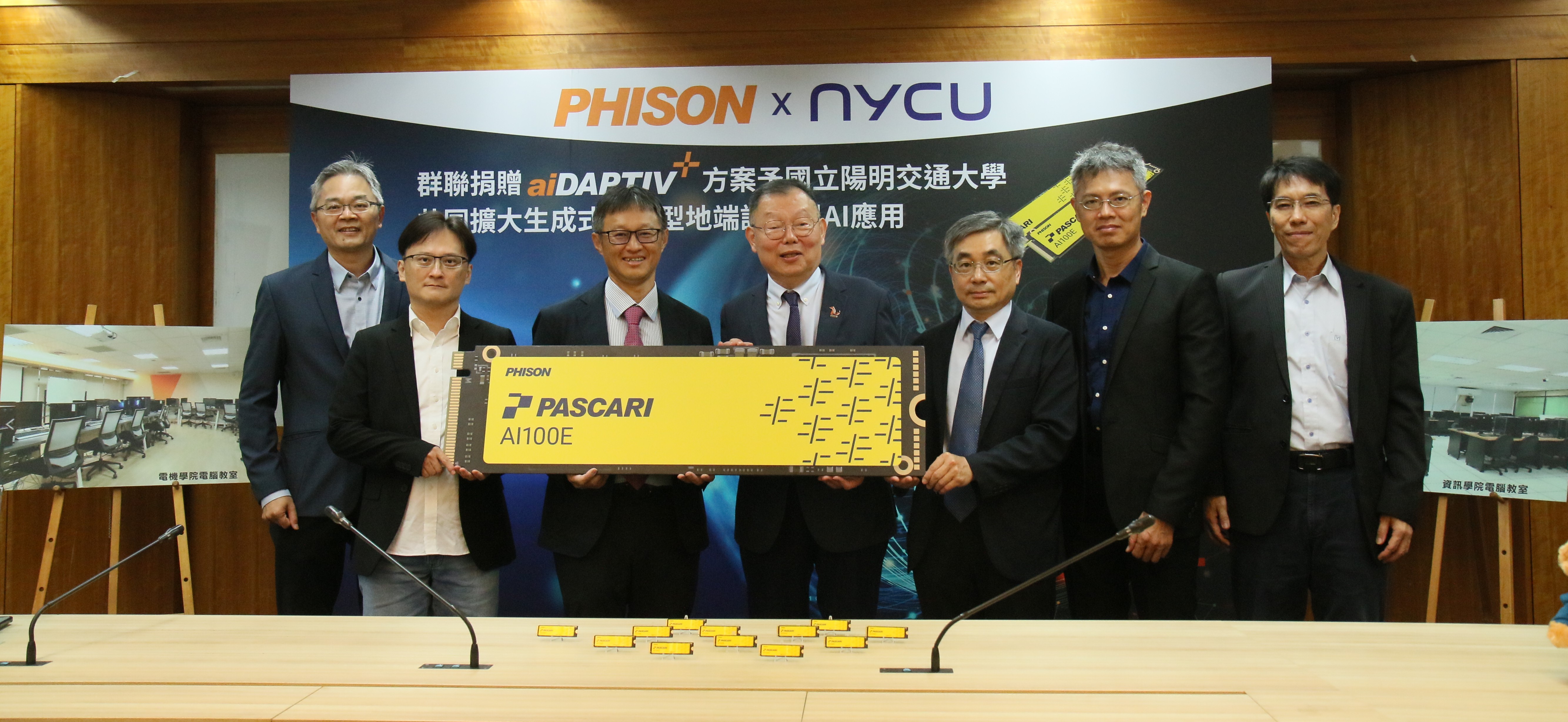Industry Collaboration Project - Opportunities for the Rapid Adoption of Generative AI: Cloud Computing Services and Phison aiDAPTIV+
- Published on
- Author
- 張怡婷

Industry Collaboration Project
Opportunities for the Rapid Adoption of Generative AI: Cloud Computing Services and Phison aiDAPTIV+
Since generative artificial intelligence (AI) gained widespread attention in late 2022, the number of models has grown exponentially, increasing by tens or even hundreds each year. Architecturally, AI has evolved from standalone models to multi-expert systems, showcasing unprecedented diversity and complexity. As industries actively explore integrating generative AI into their workflows, they face growing concerns about information security and system controllability. A significant barrier to its widespread adoption, however, remains the high cost of deployment.
A Microsoft research report indicates that the growth rate of AI models will surpass that of DRAM in GPUs by a factor of 200. This significant disparity is putting pressure on current AI hardware architectures, making it increasingly challenging to meet the demands of AI applications. As a result, this creates obstacles for many organizations looking to adopt generative AI on a large scale. In response to these challenges, cloud service providers have emerged, offering rentable computational power and introducing a new business model for the AI era.
In addition to NVIDIA's ongoing and robust support for GPU cloud hosting providers and its investments in cloud streaming services to bolster global cloud infrastructure, international investments in AI computing centers have also increased significantly. For instance, the startup CoreWeave plans to build 14 data centers by the end of this year with competitive prices of cloud rental services which has prompted Microsoft to partner with the company. Similarly, companies such as Lambda Labs and Together AI have secured substantial funding to expand their GPU data centers. Meanwhile, North America's four leading cloud giants have started developing their own AI chips. In Taiwan, Foxlink Group, led by T.C. Gou, has teamed up with Ubitus, a company operating data centers in Japan and Taiwan, to establish the "Ubilink Supercomputing Center." With an initial investment of 2 billion NTD, Ubilink plans to acquire 1,000 H100 GPUs from ASUS and integrate the latest DGX GH200 AI computation platform to establish the latest AI computing infrastructure in the project's first phase. This initiative aims to establish the largest AI computing center in Taiwan. Additionally, G.M.I. Technology has secured an investment of approximately $600 million NTD from Realtek and is purchasing 55 H100 servers from Super Micro Computer to build its own AI computing center.
Beyond the impending price war in the cloud computing market, Phison Electronics Corp., with over 23 years of expertise in NAND controller chips, is leveraging its core strengths to improve system performance by utilizing NAND Flash technology to expand high-bandwidth memory (HBM). Phison has also developed its innovative AI computing architecture, aiDAPTIV+, by integrating solid-state drives (SSDs). This approach provides an alternative model to reduce the deployment costs of generative AI, thereby facilitating its broader adoption and application.
Dr. Wei Lin, Head of Phison's AI R&D team and Assistant Professor at the College of Artificial Intelligence at National Yang Ming Chiao Tung University, explained that Phison’s core business and competitive advantage lie in NAND controller chip development. As a result, the company has increasingly focused on strengthening the integration of NAND storage with AI applications in recent years. Phison’s innovative aiDAPTIV+ AI architecture, which integrates SSDs with AI computing framework to optimize performance, structurally decomposes large AI models and coordinates the operation of model parameters with SSDs according to application time sequences to maximize the efficiency of AI models within the constraints of limited GPU and DRAM resources. This solution is expected to substantially reduce the hardware cost associated with deploying AI services.
By integrating AI technology into NAND controller chips and algorithms to enhance both computational performance and reliability, Phison’s aiDAPTIV+ not only effectively reduces the hardware costs of AI servers but also makes the AI computing architecture applicable to a wider range of AI use scenarios. For example, the aiDAPTIV+ AOI optical inspection system helps accelerate the transition to Industry 4.0 in SMT factories. Additionally, it enhances inspection accuracy and reduces the instability caused by manual inspection.
Although the competition for computing power driven by generative AI is intensifying, it is expected that the research and development of a wide range of applications will become increasingly feasible as application costs continue to decrease. Professor Li-Pin Chang from the College of Computer Science at NYCU stated that the college will introduce training courses and establish a research platform for faculty members. Additionally, the faculty will collaborate to develop a GAI (Generative AI) curriculum, providing students with opportunities to learn about and experiment with innovative generative AI applications.